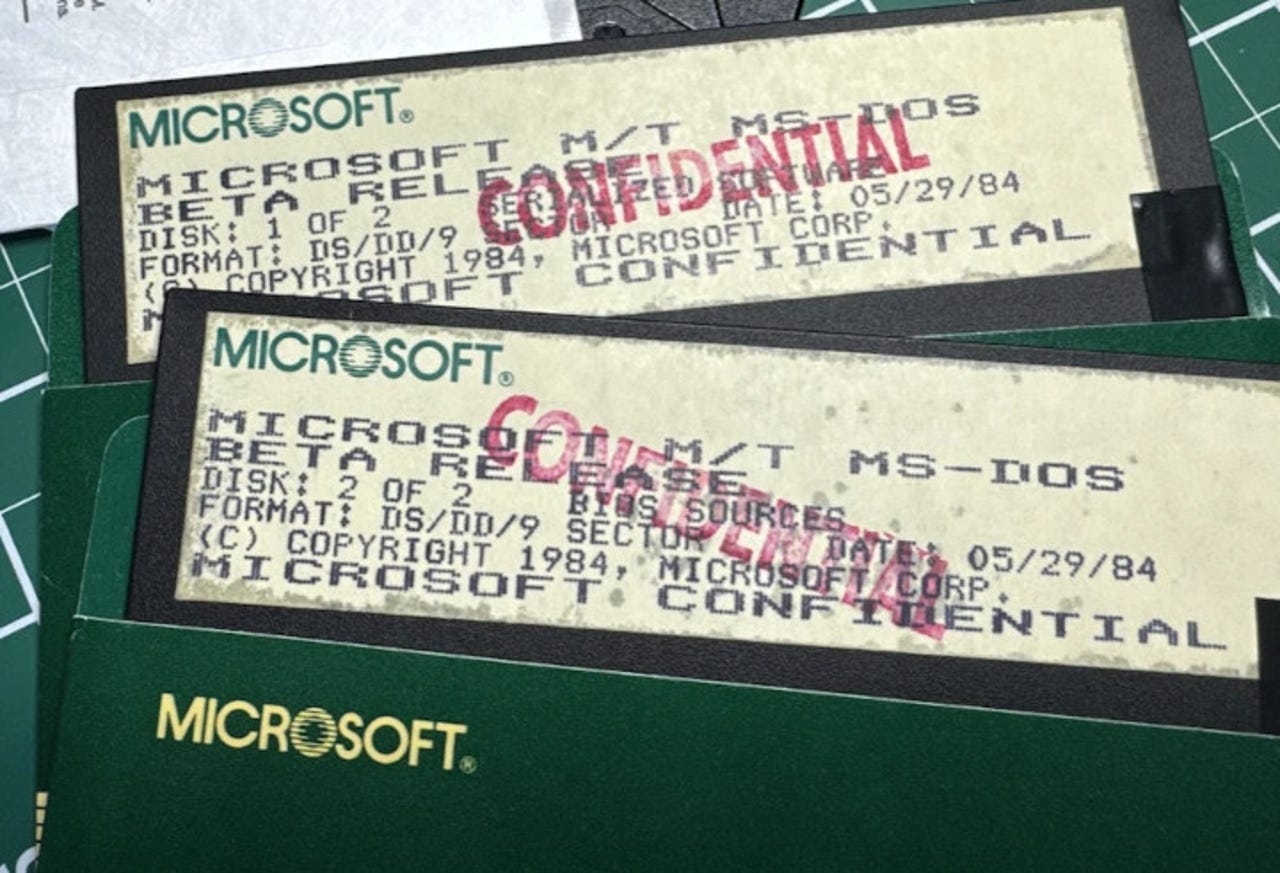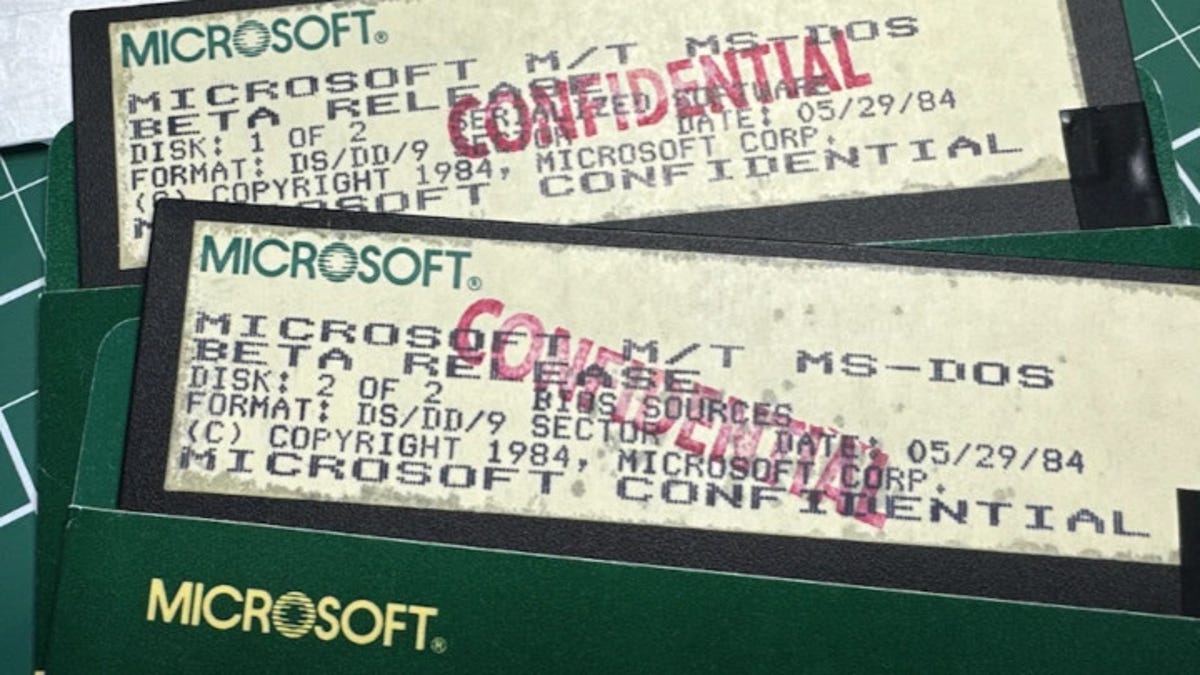It’s baaack! Microsoft and IBM open source MS-DOS 4.0

It’s no joke. Microsoft and IBM have joined forces to open-source the 1988 operating system MS-DOS 4.0 under the MIT License. Why? Well, why not?
As Scott Hanselman, Microsoft’s VP of the developer community, and Jeff Wilcox, head of Microsoft’s Open Source Programs Office, recount in Microsoft’s Open Source Blog, “a young English researcher named Connor ‘Starfrost’ Hyde corresponded recently with former Microsoft Chief Technical Officer Ray Ozzie” about the relationship between DOS 4, Multitasking DOS (MT-DOS), and what would become IBM and Microsoft’s OS/2.
Also: Ubuntu 24.04: This great new Linux distro isn’t just fast – it’s a fortress
That got Hanselman and Wilcox digging into the Microsoft archives. The blog post continues: “While they were unable to find the full source code for MT-DOS, they did find MS-DOS 4.00, which we’re releasing today, alongside these additional beta binaries, PDFs of the documentation, and disk images.”
This isn’t the first time Microsoft has released MS-DOS source code. Back in 2014, Microsoft open-sourced the MS-DOS source code for versions 1.25 and 2.0 via the Computer History Museum.
Other DOS versions have also been open-sourced over the years. PC-MOS/386, a multi-user MS-DOS clone by Norcross, GA-based The Software Link, was open-sourced in 2017. It ran most standard DOS and 386’s protected mode applications.
Indeed, it was a better DOS operating system than MS-DOS 4.0. For those of you who weren’t running it in 1988 — when The Cosby Show and Roseanne were the most popular TV shows in the States and Joe Montanna was leading the San Francisco 49ers to their third Super Bowl win — MS-DOS 4.0 was an awful operating system.
Also: If all kernel bugs are security bugs, how do you keep your Linux safe?
How awful? Popular programs of the day — such as WordPerfect 5.1, Lotus 1-2-3, and Doom — always broke on it. You’d be in the middle of a task, and, bang, your program would freeze completely. Long before we got to know and hate Windows’ Blue Screen of Death, MS-DOS 4.0 horrified PC users.
That was mainly because MS-DOS 4.0 used an enormous 92KB of RAM. Today, you wouldn’t notice that much RAM being used on your watch. But back in the day, when 640K was what you got on a high-end PC, it was a big deal. It used more memory than any other version of DOS before or since.
PC users either returned to MS-DOS 3.3, which I recommended at the time, or moved to Digital Research’s DR-DOS 3.41.
How bad was MS-DOS 4? DR-DOS version numbers had started off mimicking MS-DOS version numbers to show that the former would work just like the latter. But there was no DR-DOS 4.0. Instead, Digital Research named its new 1989 version DR-DOS 5.0 to prevent anyone from thinking that it had any connection with MS-DOS 4.0.
Also: When Windows 10 support runs out, you have 5 options but only 2 are worth considering
Indeed, perhaps one reason so many people were ready to try a new Unix-like operating system, Linux, in 1991 was that MS-DOS 4.0 had annoyed so many users.
Today, you can download the MS-DOS 4.0 source code and run it for yourself on an original IBM PC XT (surely someone has one still running somewhere), a newer Pentium, and with the open-source PCem and 86box emulators. It might also work with Oracle VirtualBox or the old Linux MS-DOS virtual machine DOSEMU, but I haven’t had a chance to check it.




